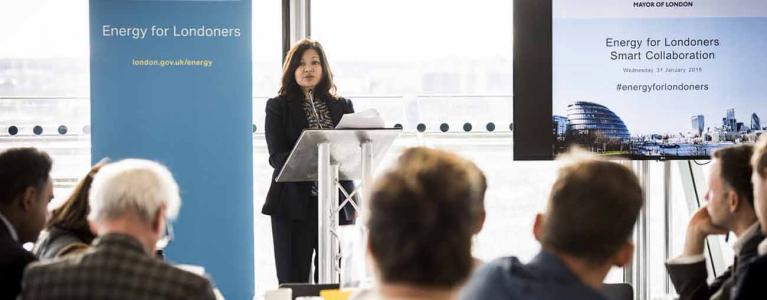
This Fuel Poverty Awareness Day, one in ten households in London are struggling to afford to pay their energy bills and heat their homes. That is 335,000 low income families and households in London often making the choice between heating and eating during the winter months.
The evidence also points to this problem only getting worse. More than one million households in the UK are in debt to their energy supplier and that rate is increasing. In this day and age, this is simply unacceptable.
An environmental health issue
It is not only levels of debt caused by high energy bills that is concerning. Of equal concern is the impact that fuel poverty is having on the health of Londoners. Children in cold homes are more than twice as likely to suffer from respiratory illnesses. Cold, damp homes that can result from not being able to heat them properly can even kill. Last year, 3,400 more Londoners died in winter compared to the rest of the year. Many of these deaths were caused by lung and heart problems which can be linked directly to low temperatures.
Alongside our dangerously polluted air, this makes fuel poverty one of London's major environmental health challenges. However, historically, it has not recognised as such. For too long, fuel poverty has been classed as an energy efficiency sector issue; largely the domain of dedicated but under-resourced local authorities and charities working in the capital.
Some of the best solutions to fuel poverty of course lie in energy efficiency; insulating homes and installing new boilers means households can spend less on their bills not just for one winter, but over many winters. However, if we are to really cut fuel poverty for good, and get the levels of investment and support needed to these households, we need to be working and pooling resources not only across the health and environment sectors, but also the housing and social justice sectors. Because fuel poverty is also falling unequally on our society. Older people, people from Black, Asian or minority Ethnic backgrounds, lone parents and people with long term disabilities are all more likely to live in cold, damp housing.
We therefore need to work across our support services to identify households living in fuel poverty, and get them the support that they need - from income maximisation, to health treatment, and even more energy efficiency measures.
Taking action
That’s why as part of his Fuel Poverty Action Plan the Mayor of London, Sadiq Khan, has committed to setting up a fuel poverty partnership this year, working together with experts across the health, social justice and environment sectors to guide London’s work on fuel poverty.
We’re working with London boroughs to support and expand their local fuel poverty referral schemes, providing a fuel poverty advice and support service across the city. We will also work with government, energy companies, the NHS, and voluntary sector to push for investment in our cold housing stock.
As part of his Energy for Londoners programme, the Mayor also recently launched the Warmer Homes scheme. This offers grants of up to £4,000 to install energy efficiency measures in low income owner occupier homes that are claiming eligible benefits to help cut energy bills and make their homes warm and dry.
You can find out more about our Warmer Homes scheme at www.london.gov.uk/warmerhomes. Our partners at SHINE London can also help with energy efficiency advice, discounts on energy and water bills and help with gas and electricity debt. You can call them on 0300 555 0195.
We believe this is the action that London needs to start to cut fuel poverty in the capital for good.